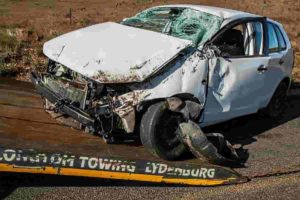Loan repayments, gas prices, maintenance and repairs – driving a car isn’t cheap. If you’re trying to cut back on expenses, insurance may seem like an extraneous indulgence you could easily do without. In the state of California, though, driving without auto insurance is a huge mistake.
All drivers in California are required to carry auto insurance or a certificate proving their financial responsibility. Self-insurance allows you to forego the traditional car insurance policy, though you will usually have to make a cash deposit of about $35,000 to the California Department of Motor Vehicles.
If you think paying off your car or filling it up is expensive, just wait until you are caught driving without insurance. You will be fined between $100 and $200 for a first offense and up to $500 for repeated infringements. And with various administrative fees and penalties, those numbers can escalate dramatically.
Of course, the real costs kick in once you are involved in an accident. Even if you are in a crash through no fault of your own, your license may be revoked and your car impounded if you are found to be uninsured. You will then have to sign up for insurance, and pay a fee, to have your license reissued and your vehicle released.

If you cause an accident while driving uninsured in California, you will have to pay for the medical bills, vehicle repairs, lost wages, and other damages that result.
Minimum Auto Insurance Requirements In California
Part of being a good, law-abiding driver in California means carrying proper insurance coverage. This is to protect both you and other drivers from potentially devastating financial losses in the event of a costly accident.
In California, you are required to carry an insurance policy that provides at least $15,000 for bodily injuries to one person and $30,000 for total bodily injuries per accident. Your policy will also have to include property damage liability coverage of $5,000.
Options For Recovering Compensation After An Accident With An Uninsured Driver
Car insurance in California is expensive, which is why many people choose to drive without it. As a result, you risk getting in an accident with an uninsured driver every time you hit the road. Fortunately, there are several potential ways to recover compensation after a collision with an uninsured or underinsured motorist:
- Uninsured Motorist Coverage: Insurance companies in California are required to offer UM coverage with every policy, but you can reject it in writing. Uninsured motorist coverage will pay out if you are involved in an accident with a driver who does not have insurance or with a driver whose policy limits are too low to pay for your damages.
- Personal Injury Protection (PIP): While not mandatory in California, personal injury protection is available as an optional extra. PIP covers the costs of medical expenses after a car accident no matter who was at fault.
- Collision Coverage: Like PIP coverage, collision coverage will pay out no matter who was at fault for a collision; however, collision coverage only pays to repair or replace your vehicle and not for medical bills or lost income.
- Filing a Lawsuit: If you are unable to recover enough compensation from the sources above, your only option may be to file a lawsuit against the at-fault driver.
As you can see, it is entirely possible to recover compensation after a collision with an uninsured motorist; however, it’s a good idea to invest in collision coverage, PIP insurance, and UM coverage since so many drivers in California are uninsured or only purchase the minimum required coverage.
